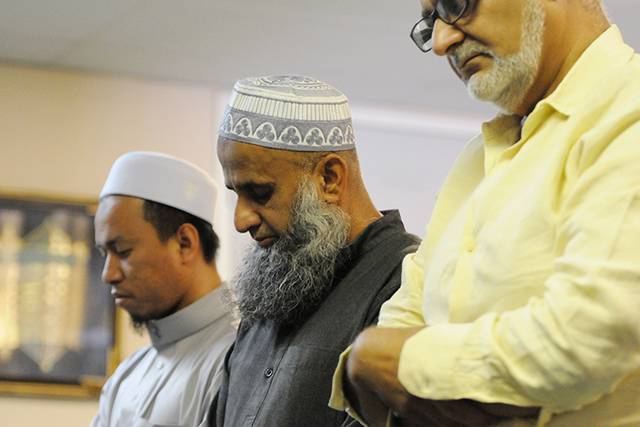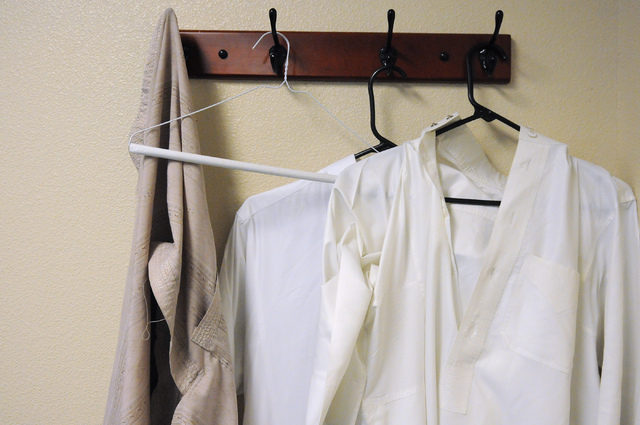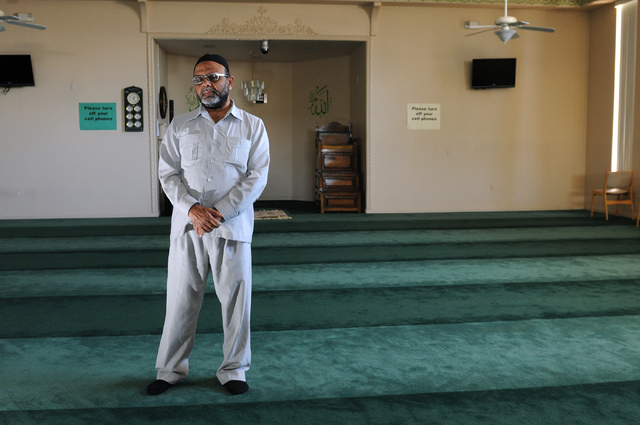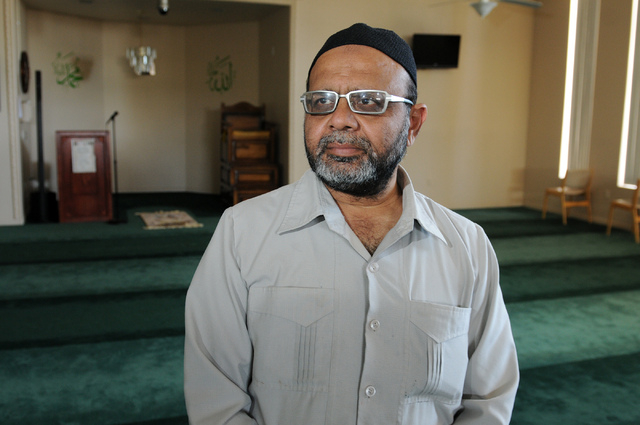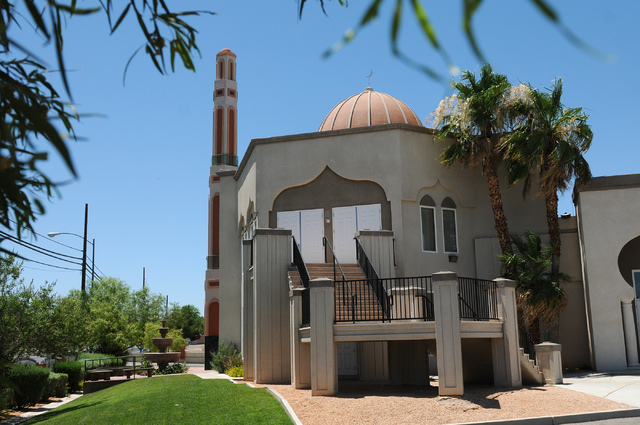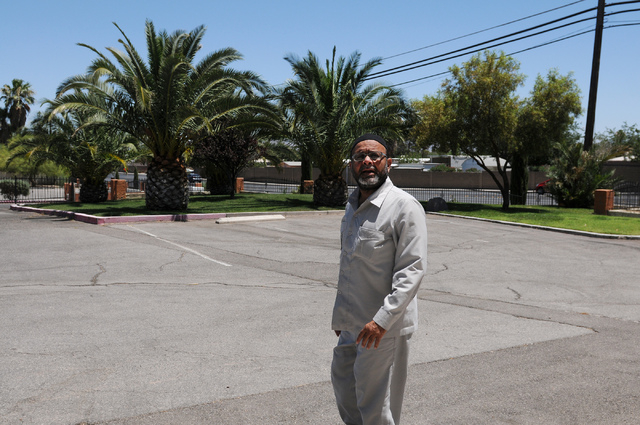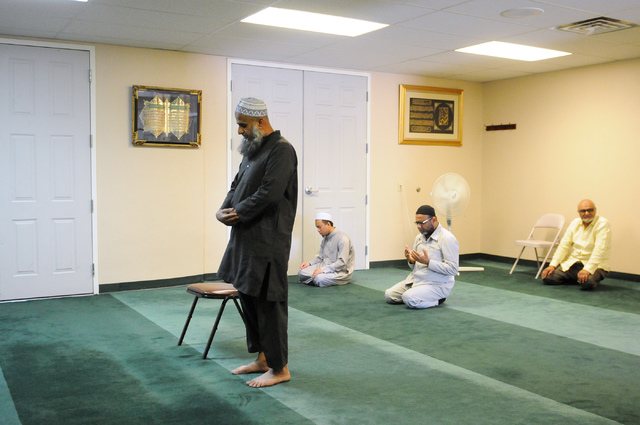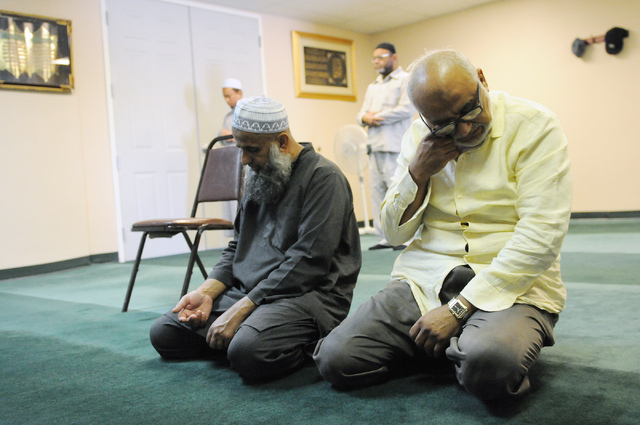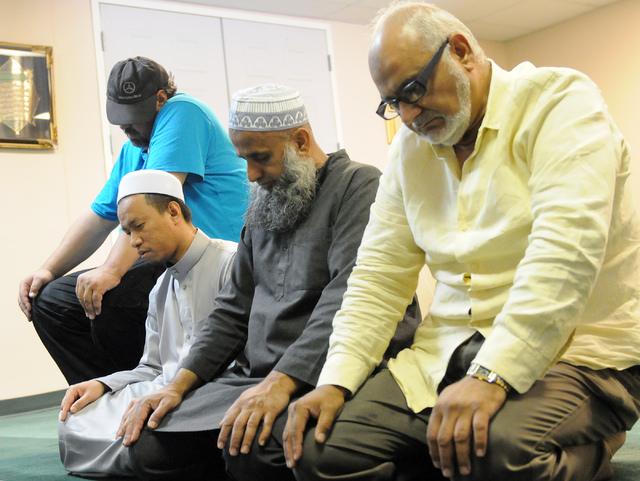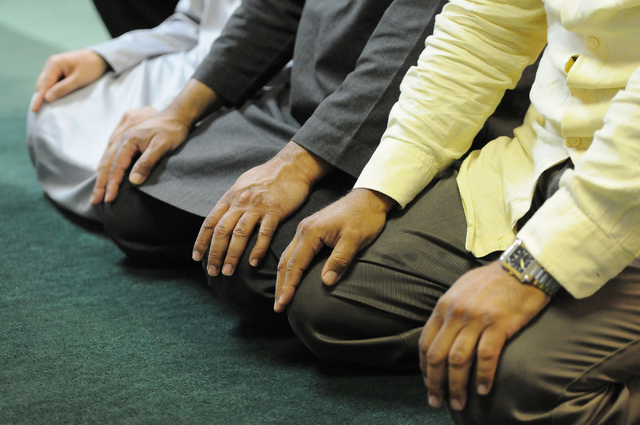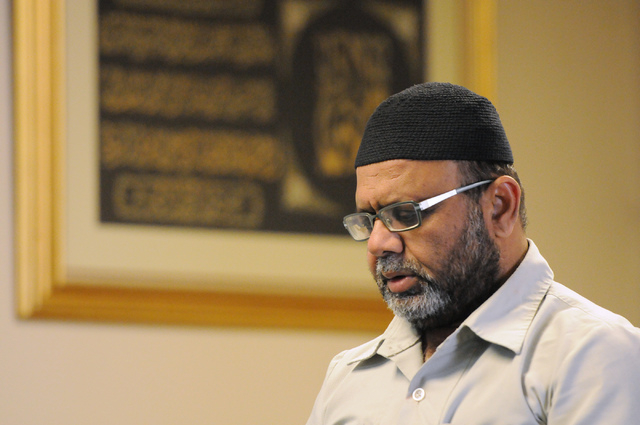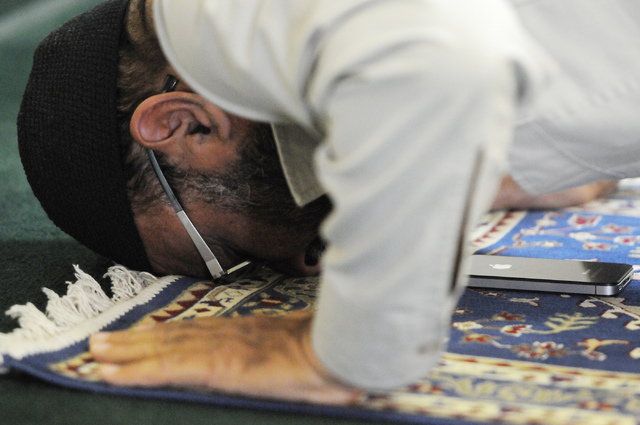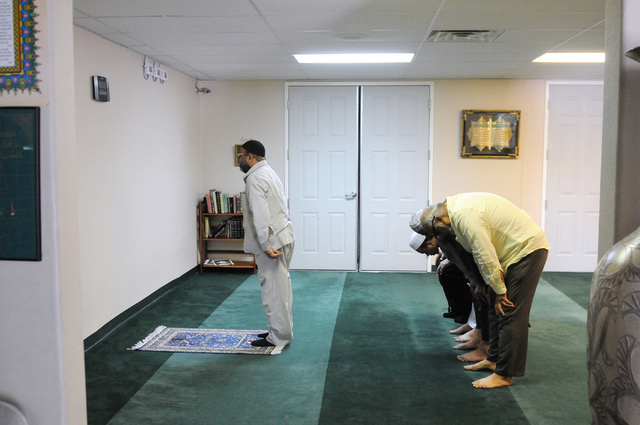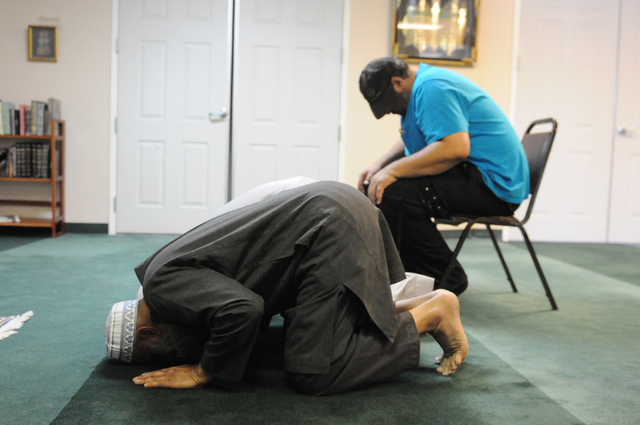Muslims reflect, recharge, rededicate at Ramadan
Reflect. Recharge. Rededicate. … Restart.
No holiday’s full significance can be compressed into four words fit for a T-shirt. Yet if any are effective shorthand for Ramadan, it’s those.
“Islam is supposed to be a simple religion, it’s not as hard as people think,” says congregant Ali Saeed following afternoon prayers recently at the Islamic Information Center.
The center, on East Russell Road, also functions as the Masjid al Noor mosque, one of five in Las Vegas.
“Ramadan is supposed to make your life easier,” Saeed says. “It’s not meant to give you hardship.”
However, sacrifice and self-discipline are the tent poles of the monthlong period of daily fasting, prayer and other acts meant to demonstrate purification of the soul for Muslims, which begins today and will end July 28.
“It is the culmination of 11 months of activities that you’ve done that maybe you shouldn’t have done,” says Haseeb Shaikh, a onetime hotel administrator at the Riviera, Caesars Palace and the Las Vegas Hilton, who oversees Masjid al Noor. “It is asking for forgiveness, putting yourself in the right direction.”
Ramadan, observed as the ninth month of the Islamic lunar calendar, is celebrated by Muslims as the time Allah first revealed the Islamic holy book, the Quran, and its criteria for right and wrong to the Prophet Muhammad. Most notable among the obligations during this time is fasting, which is required from dawn to sunset. During this time each day, Muslims are expected to abstain from both food and drink, as well as sexual relations, smoking and other unhealthy habits, using foul language and behaving in any way — such as fighting, lying and stealing — that is hurtful to others.
“You cannot be perfect, but you can make an effort to be perfect,” Shaikh says. “What would make you a good person so that anyone looking at you — a Christian, a Jewish person, a Hindu person — say, ‘This person is alright’? He is respectful of his fellow human beings, he curbs his appetite, he helps people. You’re trying to recalibrate your life for the next 11 months by making this effort for one month.”
Doing so with others is an important element of Ramadan, particularly at prayer gatherings and meals to break the daily fasts.
“Ramadan is very spiritual, the whole community gets together,” says Asma Ghanim, a Palestinian and Masjid al Noor worshipper who runs a home for seniors with her husband. “In Las Vegas, you see Muslims from so many countries, from Indonesia, from Malaysia, the Philippines, Africa and the Middle East. It is this beautiful gathering, all this blend of people getting together, that you cannot see other than this exceptional month.”
Restraining natural human appetites and urges for the purpose of self-improvement can have a physical and spiritual domino effect, says Ahmad Fayed, a UNLV mechanical engineering instructor and volunteer at Masjid al Noor.
“God is asking us to stop eating and drinking and having relations with women,” Fayed says. “These are the essential things, and if you can stop these, it is much easier to stop the other things like lying or stealing or hitting someone. Some Muslims stop smoking after Ramadan. God says, ‘I gave you good health, I gave you a nice body, why should you destroy it?’ Ramadan is a way to help us stop that.”
Fasting, known in Islam as “sawm,” is considered by Muslims to help redirect people’s yearnings away from worldly concerns and cleanse the soul of harmful impurities. Just before dawn, Muslims eat a prefast meal called “suhoor.” At sunset, the daily fast is broken — first with dates, as tradition dictates was done by Muhammad — in a meal known as the “iftar.”
Skipping the iftar and any additional, deliberate fasting is deemed unacceptable.
“You are not allowed to wait one second more than after the sun sets,” Shaikh says. “There are no extra points for going after the fast. The religion teaches you moderation. Everything has to be about moderation.”
Fasting becomes mandatory at puberty, though no age is specified in the way Jews consider a boy to have advanced to manhood at age 13.
“A lot of kids start early, not eating for part of the day,” says 19-year-old UNLV student Talha Khan, citing a well-recognized standard for the onset of puberty and Ramadan observance. “It’s when the facial hair starts coming, and the wet dreams.”
Exceptions to fasting can be made for several reasons, most notably health concerns if someone is ill or needs medication. Others include menstruation, pregnancy, breast-feeding or travel considerations if fasting is impractical. In those instances, fasting days must be made up at a later date, and it is expected that those who cannot fast will feed a poor person who does not have enough to eat. Recognition of the less fortunate is a crucial spiritual element of Ramadan.
“Here in the West we have everything,” says Yacouba Moumouni, another Masjid al Noor congregant. “It is a way for us to remember people who don’t have enough to eat or drink. You feel the way they feel and you are willing to help them.”
Beyond empathy, tangible acts of charity are also required, both monetarily and behaviorally. Good deeds are thought to be rewarded even more during Ramadan than in the rest of the year. Giving to the poor is divided into “zakat,” which is obligatory, and “sadaqah,” which is voluntary, above zakat’s prescribed amount.
“Each Muslim who has savings and more than a certain amount of money is expected to give two and a half percent of savings and income to the community at large,” says Aslam Abdullah, director of the Islamic Society of Nevada, which is based at the Jamia Masjid mosque, the largest in Las Vegas, on East Desert Inn Road.
“In addition, during the month of fasting, each individual is required to donate at least an amount equal to the feeding of one individual and that money is given to the mosque. If we have 5,000 people praying at one place, each one would pay $10 per person and that amount, $50,000, would be given to the poor and the needy so those less fortunate can participate in the celebration of the holiday.”
Compassion with no dollar amount is also encouraged.
“If I’m walking down the street and I see trash and pick it up, that is charity,” Saeed says. “Charity could be when I see you, I wear a smile on my face. It can be when I’m driving in North Las Vegas and I see a homeless person and hand him a water. Just remembering God is charity.”
And of course, there is abundant prayer, said five times each day. During the course of the month, worshippers are encouraged to read the entire Quran, with one section recited every evening.
“There are 30 parts of the scriptures,” Abdullah says. “Some people have memorized the entire scriptures, which are more than 600 pages, and they repeat it from memory. The people behind them listen to it and reflect on it. This is one of the important things we do.”
In the spirit of inclusiveness, non-Muslims of every faith are invited to local mosques during Ramadan to observe nightly prayers and, during the last 10 days of the holiday, can attend an evening of breaking the fast that is hosted, collectively, by the local Muslim community.
“The Christians, the Jews, the Hindus, all faiths can participate,” Abdullah says. “Various ethnicities come together. It is about giving and sharing.”



